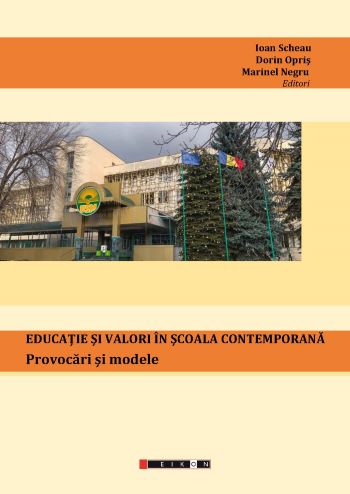SERVICE-LEARNING ȘI EDUCAȚIA PENTRU VIITOR.
ABORDĂRI ȘI PERSPECTIVE DIDACTICE ACTUALE
SERVICE-LEARNING AND EDUCATION FOR THE FUTURE. CURRENT DIDACTIC APPROACHES AND PERSPECTIVES
Author(s): MIHAELA OROS
Subject(s): Social Sciences, Education, School education, Higher Education , Educational Psychology, Pedagogy
Published by: Editura Eikon
Keywords: education; modern teaching methods; service-learning; service-learning projects;
Summary/Abstract: Starting from Spiru Haret’s statement, we, the teachers, are constantly concerned about the novelties that come on the education system and how we cope with the changes in the current society. When we think about the future of education, we wonder how we can prepare ourselves permanently but also how we can prepare our students/students to integrate into a constantly changing world. As the world becomes an increasingly interconnected place, we are challenged by new scenarios that require new knowledge and skills “multidimensional, transversal, polydisciplinary, transnational”. One of the main concerns of the school in the 21st century is to participate alongside other institutions in the formation of an active, democratic, multicultural society that promotes true values, more acceptance, tolerance, good understanding among people. In this regard, many educational institutions around the world have begun, in recent decades, to adopt educational policies that build support bridges between schools/universities and the community by promoting skills: “to learn to know,” “to learn to be,” “to learn to do,” “to learn to live with others.” Thus, service-learning pedagogy penetrates more and more into the Romanian education system, even if at times this type of pedagogy is viewed with mistrust by teachers or parents, who express fears that students “lose time” in the idea in which they have to take standardised exams where the emphasis is placed on memory and cognitive learning. Service-learning projects involve actions in the educational, but also social spheres, based on the notion that community and civic involvement can be innovative means of applying theoretical content, complementing the range of competences and skills and modifying attitudes. These projects are led by students and allow collaboration between educational institutions and the community through the active participation of students in solving concrete problems of the current society.
Book: Educaţie şi valori în şcoala contemporană. Provocări şi modele
- Page Range: 83-90
- Page Count: 8
- Publication Year: 2023
- Language: Romanian
- Content File-PDF

